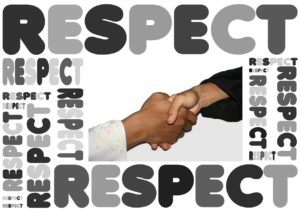Myth: Trickle Down Economics Works Since the days of Ronald Reagan, many have promoted the…

Neuroscience, Respect, Leadership
We know that the emotional brain responds to an event more quickly than the thinking brain. This is how humans evolved and survived. The challenge now is to circumvent the fast-as-lightning lizard brain which feeds our implicit bias. For leaders, this is critical. Leaders must work actively to re-wire their brains to be respectful of those who are “others” or not like themselves. The results of inclusion and respect in the workplace are well-known and can offset some of the current workforce trends:
- Gen Y will represent the vast bulk of highly relevant and employable “available talent,” as they represent nearly 25% of the American workforce today and will comprise over 50% by 2020.
- At no time in American history have so many different generations with such a diversity of worldviews and work philosophies been asked to team up and work together.
- Seventy percent of all U.S. jobs created since 1998 require conceptual skills of knowledge workers. These knowledge workers require the synergy that results from the confluence of ideas and information.
Respect and leadership is critical to this process. Paul Meshanko in his book “The Respect Effect,” defines it this way:
Respect is an active process of nonjudgmentally engaging people from all backgrounds. It is practiced to increase our awareness and effectiveness, and demonstrated in a manner that esteems both us and those with how we interact.”
Respect is not tolerance
Paul Meshanko has developed 12 Rules of Respect for leaders, or indeed, for anyone.
- Be Aware of Your Nonverbal and Extra-verbal Cues. This is body language, the tone of voice. Up to 93% of your message may be conveyed without words.
- Develop Curiosity About the Perspectives of Others. Ask open-ended questions.
- Assume That Everyone Is Smart About Something. Albert Einstein said, “Everyone is a genius. But if you judge a fish on its ability to climb a tree, it will live its whole life feeling stupid.”
- Become a Better Listener by Shaking Your “But”. In conversation the word “but” tends to make irrelevant everything that came before it.
- Look for Opportunities to Connect with and Support Others. This doesn’t mean that you need to fix things for people. Ask them if you can help and if they give you a way to help – do that. They may just need someone to listen.
- When You Disagree, Explain Why. Do you have facts? An experience? Help others understand why you disagree.
- Look for Opportunities to Grow, Stretch, and Change. Self-improvement can be a lifelong journey. When self-respect grows, respect for others can follow.
- Learn to Be Wrong on Occasion. Nehru, First Prime Minister of India said, “Let us be a little humble, let us think that the truth may not perhaps be entirely with us.” Stay open to the possibility that you are totally wrong.
- Never Hesitate to Say You Are Sorry. An apology must be 100% sincere. A stiff apology is a second insult.
- Intentionally Engage Others in Ways That Build Their Self-Esteem. Think of the person who compliments you on a job well done. It feels great – right? Be that person for others.
- Be Respectful of Time When Making Comments. One of the most important aspects of respect is listening. Endeavor to talk no more than half of the time in a conversation. Listen for meaning and feeling.
- Smile! The shortest distance between two people is a smile.
Measuring Respect, Leadership Effectiveness
Your organization may wonder where to begin this process. One way is to measure the current state. Spectra Diversity helps organizations measure the culture of the organization and how management is viewed by employees. Respect is one of the attributes that is measured. Having this information, an organization can see its strengths as well as weaknesses and plan accordingly. The Spectra Diversity Facilitated Training Kit has strategies for five simple actions to execute on a daily basis:
- Acknowledge unconscious bias
- Be present and pause
- Consider the other person’s point of view
- Determine what to do differently
- Engage others through dialogue
Contact Spectra Diversity for more information about measuring leadership effectiveness.
Source: “The Respect Effect: Using the Science of Neuroleadership to Inspire a More Loyal and Productive Workplace,” Paul Meshanko, McGraw Hill, 2013
Source: Forbes, “How Companies Can Benefit From Inclusion,” Dan Schwabel, May 13, 2012



